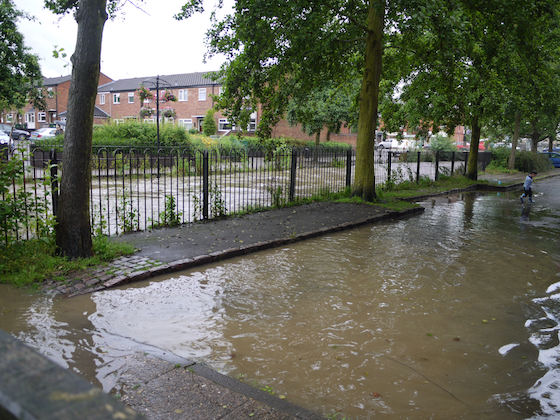An international project to help improve water management in cities around the world is being led by the Institute of Energy and Sustainable Development at De Montfort University Leicester (DMU).
 Ways in which flooding across Leicester will be examined and best practice shared
Ways in which flooding across Leicester will be examined and best practice sharedPOWER is a £3.75million programme which aims to tackle global issues caused by climate change, rapid urbanization and poor infrastructure such as flooding, water scarcity, pollution and water conservation.
This week, experts from the 12 partner organisations are due to meet in Leicester to discuss the next steps of the project.
The aim is to foster a community of engaged residents, businesses and organisations who are aware of the risks of not taking action and want to create positive change.
The end result will be a website and social media platform which is informative and interactive, allowing people to learn about issues in their area, encourage users to reduce water consumption and show the potential risks if nothing is done.
So far the project has identified best practice in four pilot cities in the UK, Jerusalem and Spain each of which address a different issue.
Leicester is an example of how to deal with flood risk; Milton Keynes for water scarcity, Jerusalem for water conservation and Sabadell, Spain for water quality.
A report outlining how each city has tackled their issues has been published and experts will meet next week to discuss next steps. The project, backed by EU funding, is set to run for four years.
Leicester’s experience of surface water flooding will be used as a case study and its best practice shared. Best practices of water issues will also be shared with Leicester City Council. Leicester’s work will be promoted to other cities and the European Commission.
Professor Paul Fleming, principal investigator, said: “The project is a great opportunity to use developments in social media and big data to share knowledge and experience between different cities throughout the world to solve the challenges of water scarcity, water quality, flood risk and climate change”
Posted on Monday 27 June 2016